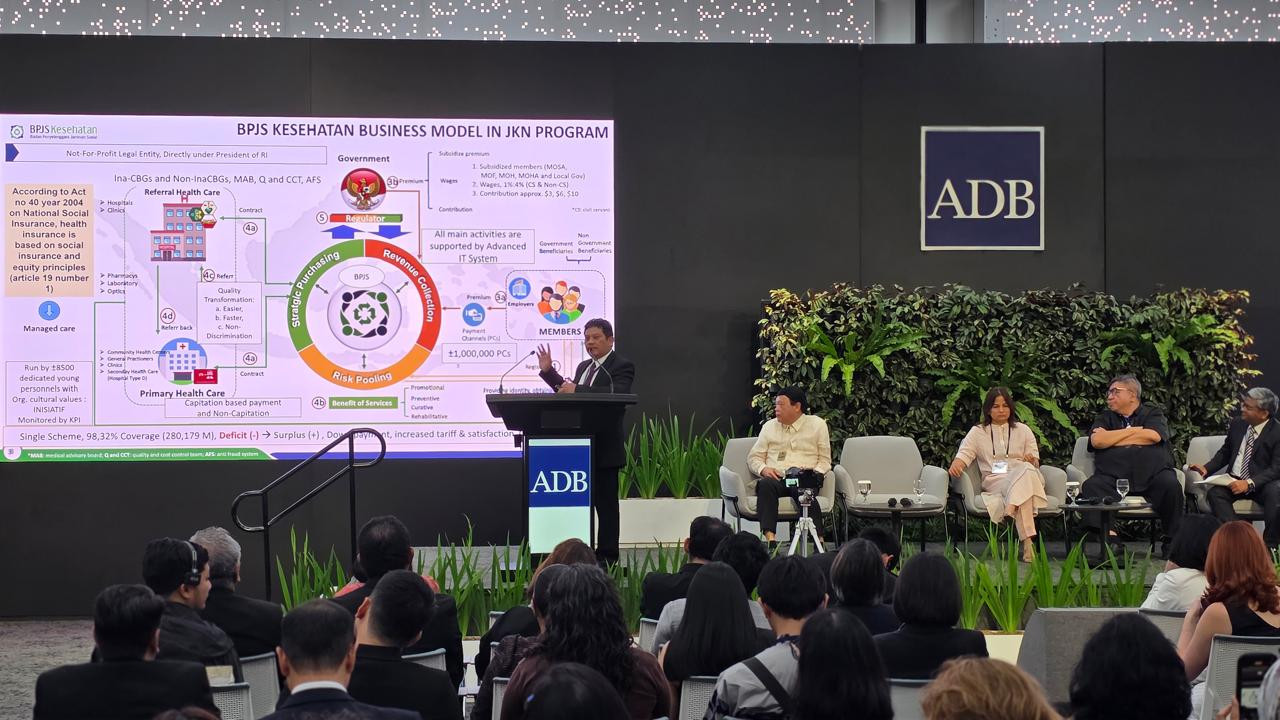Popular Reads
Top Results
Can't find what you're looking for?
View all search resultsPopular Reads
Top Results
Can't find what you're looking for?
View all search resultsIndonesia gains global acclaim for achieving UHC in just 10 years
Change text size
Gift Premium Articles
to Anyone
I
ndonesia has set a new standard for the global health community by achieving universal health coverage (UHC) in a mere decade: an impressive feat, considering that some nations have taken generations to reach the same goal.
According to Ghufron Mukti, president director of the Health Care and Social Security Agency (BPJS Kesehatan), the country’s rapid progress is rooted in strong government commitment and the inclusive involvement of regulators and stakeholders in shaping policies to expand healthcare coverage.
“Based on a 2012 Lancet [article], most Asian countries need decades to enroll their population in social health insurance. Germany, the pioneer of social health insurance, took 127 years. Indonesia needed only 10 years to reach UHC,” Ghufron said at the INSPIRE Health Forum, held from July 7 to 11 in Manila.
The archipelagic country, the world’s fourth-most populous, attained health coverage for more than 98 percent of the population under the National Health Insurance (JKN) program, overcoming numerous geographic and demographic challenges through collaborative action.
“We’ve welcomed numerous delegations from other countries who want to learn from our approach. Indonesia is now seen as a global reference in health insurance implementation,” said Ghufron.
To match growing membership with accessible services, BPJS Kesehatan continues to expand its network of health facilities. As of 2024, it has collaborated with 23,682 primary healthcare facilities (FKTPs) and 3,162 referral hospitals (FKRTLs) nationwide.
“The JKN program has also stimulated growth in the private healthcare sector. Around 66.13 percent of BPJS-affiliated hospitals are privately owned. Between 2014 and 2024, the number of participating hospitals increased 88 percent,” noted Ghufron, who also chairs the Technical Commission on Medical Care at the International Social Security Association (ISSA).
Efforts to reach underserved areas include establishing contractual agreements with floating hospitals to serve remote regions. This and other innovative solutions are part of the agency’s commitment to provide equitable healthcare access across the country.
“From the [JKN] participant’s perspective, it’s not just about access. It is also about quality, satisfaction and meeting the needs of our members,” he added.
“Our borderless service model allows JKN participants to receive care anywhere in Indonesia, regardless of their registered domicile.”
Indonesia’s journey, he emphasized, reflected not only policy innovation but also a deep commitment to health equity on a national scale.










